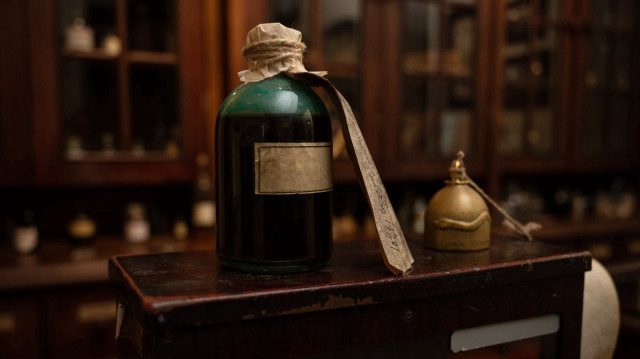
Ergul, the founder of Türkiye's first scent academy, is on a mission to revive the art of perfumery and ‘reintegrate scents into our daily lives'
In the Ottoman Empire, scent was infused into everyday life. Rosewater cleaned mosques, incense burned in homes, and musk perfumed palaces. Fragrance marked every stage of life.
That layered scent culture has largely faded, eclipsed by the rise of a globalized perfume industry. But one woman is working to bring it back – one thoughtful sniff at a time.
“Since the day I was born, scents have been part of my life,” fragrance expert Bihter Turkan Ergul told Anadolu. “For as long as I can remember, I've smelled everything.”
The founder of Türkiye's first scent academy – Koku Akademisi – Ergul has trained more than 370 students, including from Germany, Qatar, Dubai, and Azerbaijan. Her mission is to reconnect modern Türkiye with its deeply fragrant past.
“There's no such thing as a bad scent. Even the unpleasant ones carry a message,” she said.
- Islam and fragrance culture
As fragrance is a sunnah – a practice of Islam's Prophet Muhammad – it held special meaning in societies shaped by Islamic principles, such as the Seljuk and Ottoman empires, Ergul explained.
Apart from the ubiquitous daily scents, particular perfumes were used to mark events or convey emotion.
“In the Ottoman era, when visiting a girl to propose marriage, people would bring the scent of lily – a way to say, ‘We wish to ask for your daughter's hand,'” she said.
If someone was upset, she explained, they might send a handkerchief scented with hyacinth to the person who offended them – a subtle but clear message of emotional pain.
“Before Ramadan started, people would do fragrance rituals. They cleaned the house, sprinkled rose water around, and burned incense,” Ergul said.
In Topkapi Palace, standing tall in Istanbul since the 1400s, Ottoman sultans personally collected dust from the room that held the Sacred Relics, and during Ramadan, the room was cleaned with special scented water.
Later, the water and the dust were mixed with scents such as amber, musk, and oud to form soft perfume balls, which were distributed to the public after the Eid prayer.
“From births and sacred relics to weddings and funerals, fragrance was present in every aspect of Ottoman life,” she said.
- Golden age of scent
The roots of fragrance culture trace back to the dawn of civilization.
“The culture of fragrance is as old as the discovery of fire,” she said. “When people threw aromatic herbs and wood into flames, incense was born.”
However, she pinpoints a 400-year golden era – from the reign of Mehmet the Conqueror in the 15th century to Sultan Selim III – as the pinnacle of Turkish scent culture.
“It begins with Fatih Sultan Mehmet, his passion for roses and other scents,” she said. “Later, Selim III commissioned the first perfume bottles made from Beykoz glass.”
By the 17th century, economic decline forced the palace to reduce its “buhurizades” – incense masters – from nine to three. From there, she points to a rapid decline, with a shift away from traditional perfume making after the Industrial Revolution.
“Where we lost this fragrance culture – that's something I ask a lot, but I don't know where exactly we lost it,” Ergul said.
- Restoring a legacy
Despite this rich heritage, Türkiye has long since fallen off the global scent map. When people think of perfume today, places like Paris or Milan come to mind – not Istanbul.
“Now everything is very standard. We use standard molds that come from the Far East,” she said. “When you look at the perfume bottles used in the Ottoman Empire, each one is a piece of art.”
In those times, bottles were meant to last a lifetime. Young women often included jasmine and rose scents in their dowries, refilling the same bottles throughout their lives.
Today, fragrance is mostly cosmetic, Ergul said.
“We use perfume just to smell nice,” she said. “But your scent is your identity. Your scent enters the room before you do – it sends a message.”
To restore Türkiye's lost olfactory status, Ergul advocates a return to local, ethical production – cultivating plants like roses, thyme and oregano without pesticides and embracing high-quality raw materials.
Her Istanbul-based scent academy embodies this approach, training students in artisanal methods rather than commercial ones. Türkiye, she believes, has perfumers as skilled as any in the world – they just need guidance.
Despite modern trends, she refuses to let the culture vanish.
“At this point in my life, the only thing I want to do is to research this ancient fragrance culture until the end of my days, bring it to light, and, together with my expert team and academics, reintegrate it into our daily lives.”







